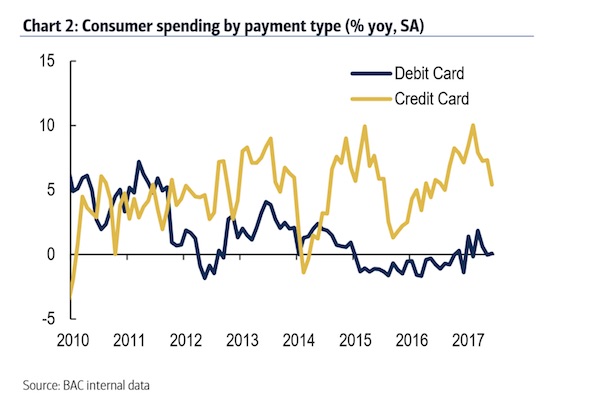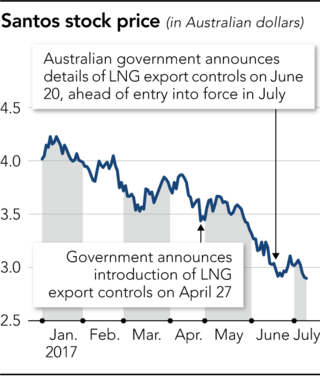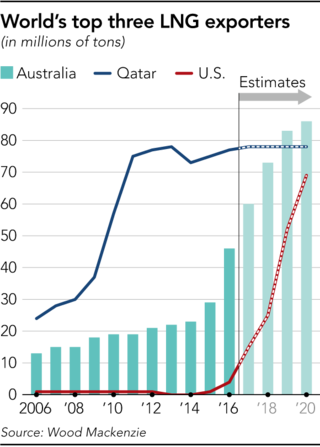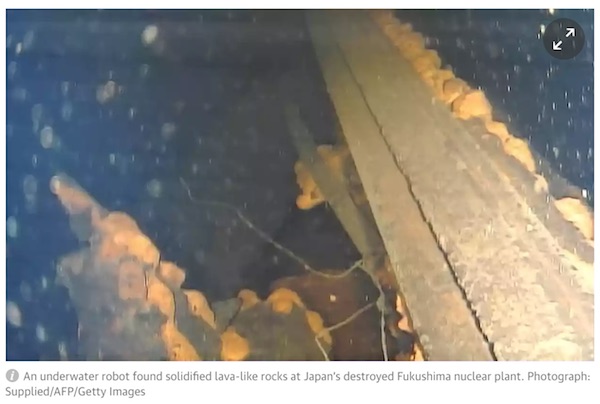
Vincent van Gogh Women Picking Olives 1889

Watch out. Stockman’s had enough.
• Lock Them Up! (David Stockman)
We frequently hear people say they have nothing to hide—-so surrendering privacy and constitutional rights to the Surveillance State may not be such a big deal if it helps catch a terrorist or two. But with each passing day in the RussiaGate drama we are learning that this superficial exoneration is dangerously beside the point. We are referring here to the unrelenting witch hunt that has been unleashed by Imperial Washington against the legitimately elected President of the United States, Donald J. Trump. This campaign of lies, leaks and Russophobia is the handiwork of Obama’s top national security advisors, who blatantly misused Washington’s surveillance apparatus to discredit Trump and to effectively nullify America’s democratic process.
That is, constitutional protections and liberties were systematically breached, but not simply to intimidate, hush or lock up citizens one by one as per the standard totalitarian modus operandi. Instead, what has happened is that the entire public debate has been hijacked by the shadowy forces of the Deep State and their partisan and media collaborators. The enabling culprits are Obama’s last CIA director, John Brennan, his national security advisor Susan Rice and UN Ambassador Samantha Power. There is now mounting evidence that it was they who illegally “unmasked” NSA intercepts from Trump Tower; they who confected the Russian meddling narrative from behind the protective moat of classified intelligence; and they who orchestrated a systematic campaign of leaks and phony intelligence reports during the presidential transition—-all designed to delegitimize Trump before he even took the oath of office.
So all three of them should be locked up -that’s for sure. But the more urgent solution would be to unlock and make public all the innuendo, surmises, assessments, half-truths and boilerplate intelligence chatter on which the entire false narrative about Russian meddling and collusion is based. Stated differently, without the nation’s massive intelligence apparatus and absurd system of secrecy and classified information to hide behind, the RussiaGate witch hunt would have never gotten off the ground. In truth, as we will essay below, there is no there, there. So what this new chapter in McCarthyite hysteria actually demonstrates is that the Imperial City’s far-flung, 17-agency, $75 billion Intelligence Behemoth is a plenary threat not just to individual liberty, but to the very constitutional democracy on which the latter depends.
To appreciate the severity of the threat, it is necessary to recognize that the post-9/11 Deep State has lowered a double whammy on our system. That is, it unconstitutionally collects the entirety of all internet based communications of America’s 325 million citizen, while at the same time it has effectively disenfranchised 98% of the 535 members of the House and Senate who have been elected to represent them. Accordingly, behind the Surveillance State’s vast wall of secrecy and so-called “classified” information, there operates a Dark Government that is unaccountable to the public and largely unconstrained by normal constitutional limits, which the Patriot Act and secret FISA courts have more or less suspended. [..] Unfortunately, the Donald doesn’t seem to recognize that he is actually President. If he did, he would have the Justice Department launch a prosecution against the faithless officials—-Brennan, Rice and Power—-who concocted the whole RussiaGate defamation in the first place.

No, Danielle. It’s not about resilience. It’s simply not a recovery. No series of numbers, no matter how impressive looking can change that.
• This Recovery Isn’t All That Resilient (DDMB)
Are Federal Reserve stress tests leading economic indicators? That certainly seems to be the case. Just ask Capital One. As of the first quarter, credit card loss provisions at Capital One were above 5%, a six-year high. The company recorded some improvement for the second quarter, yet Fed stress tests of the bank’s overall loan portfolio in a deep downturn show losses topping 12%. That explains Capital One’s “conditional” passing score, a black eye that prompted a reduced share buyback plan and no increase in its dividend. Most economists today applaud the resilience of the current recovery, which has stretched into its eighth year, the third-longest in postwar history. Resilience and rising household defaults, though, don’t tend to go hand in hand. Pressures have been building in the background for some time.

When adjusted for inflation, credit card usage has grown faster than incomes for 18 months. According to Fed data, that time frame coincides with the upturn in revolving credit, a proxy for credit card debt. In November 2015, outstanding revolving credit crossed above the $900-billion threshold for the first time since December 2009. By May of this year, annual growth was clocking 8.7%. Meanwhile, credit card balances hit $1.02 trillion, the highest level in almost eight years. Whether by choice or force, the aftermath of the financial crisis prompted households to ratchet back their usage of credit cards. As the recovery got underway, frugality prevailed, punctuated by an increase in debit card purchases. It is thus notable that Bank of America data find debit card usage has weakened in recent years as households grew more comfortable rebuilding their credit card balances.
“Confidence” is the term most associated with the rising credit card debt. But it’s fair to ask why confident households would choose to pay so dearly for the privilege. At 15.83%, the average rate on credit card balances is at a record high. It is more likely that households are increasingly tapping their credit cards to cover the cost of necessities, that they are less confident and more anxious about their future finances. The latest University of Michigan consumer confidence data suggest anxiety is indeed setting in. At 80.2, the expectations component is at the lowest since October and running below the 2016 average of 81.8.

Productivity in a so-called service economy. A mirage.
• Is Productivity Growth Becoming Irrelevant? (Adair Turner)
Our standard mental model of productivity growth reflects the transition from agriculture to industry. We start with 100 farmers producing 100 units of food: technological progress enables 50 to produce the same amount, and the other 50 to move to factories that produce washing machines or cars or whatever. Overall productivity doubles, and can double again, as both agriculture and manufacturing become still more productive, with some workers then shifting to restaurants or health-care services. We assume an endlessly repeatable process. But two other developments are possible. Suppose the more productive farmers have no desire for washing machines or cars, but instead employ the 50 surplus workers either as low-paid domestic servants or higher-paid artists, providing face-to-face and difficult-to-automate services.
Then, as the late William Baumol, a professor at Princeton University, argued in 1966, overall productivity growth will slowly decline to zero, even if productivity growth within agriculture never slows. Or suppose that 25 of the surplus farmers become criminals, and the other 25 police. Then the benefit to human welfare is nil, even though measured productivity rises if public services are valued, as per standard convention, at input cost. The growth of difficult-to-automate service activities may explain some of the productivity slowdown. Britain’s flat productivity reflects a combination of rapid automation in some sectors and rapid growth of low-productivity, low-wage jobs – such as Deliveroo drivers riding around on plain old-fashioned bicycles. In the United States, the Bureau of Labor Statistics reports that eight of the ten fastest-growing job categories are low-wage services such as personal care and home health aides.
The growth of “zero-sum” activities may, however, be even more important. Look around the economy, and it’s striking how much high-talent manpower is devoted to activities that cannot possibly increase human welfare, but entail competition for the available economic pie. Such activities have become ubiquitous: legal services, policing, and prisons; cybercrime and the army of experts defending organizations against it; financial regulators trying to stop mis-selling and the growing ranks of compliance officers employed in response; the huge resources devoted to US election campaigns; real-estate services that facilitate the exchange of already-existing assets; and much financial trading. Much design, branding, and advertising activity is also essentially zero-sum. It is certainly good that new fashions can continually compete for our attention; choice and human creativity are valuable per se. But we have no reason to believe that 2050’s designs and brands will make us any happier than those of 2017.

The new House sanctions under fire from Merkel AND Trump.
• EU Sounds Alarm, Urges US To Coordinate On Russia Sanctions (R.)
The European Union sounded an alarm on Saturday about moves in the U.S. Congress to step up U.S. sanctions on Russia, urging Washington to keep coordinating with its G7 partners and warning of unintended consequences. In a statement by a spokeswoman after Republicans and Democrats in the U.S. Congress reached a deal that could see new legislation pass, the European Commission warned of possibly “wide and indiscriminate” “unintended consequences”, notably on the EU’s efforts to diversify energy sources away from Russia. Germany has already warned of possible retaliation if the United States moves to sanction German firms involved with building a new Baltic pipeline for Russian gas.
EU diplomats are concerned that a German-U.S. row over the Nord Stream 2 pipeline being built by Russia’s state-owned Gazprom could complicate efforts in Brussels to forge an EU consensus on negotiating with Russia over the project. “We highly value the unity that is prevailing among international partners in our approach towards Russia’s action in Ukraine and the subsequent sanctions. This unity is the guarantee of the efficiency and credibility of our measures,” the Commission said in its statement. “We understand that the Russia/Iran sanctions bill is driven primarily by domestic considerations,” it went on, referring to a bill passed in the U.S. Senate last month and to which lawmakers said on Saturday they had unblocked further obstacles.
“As we have said repeatedly, it is important that any possible new measures are coordinated between international partners to maintain unity among partners on the sanctions that has been underpinning the efforts for full implementation of the Minsk Agreements,” the Commission said, referring to an accord struck with Moscow to try to end the conflicts in Ukraine. “We are concerned the measures discussed in the U.S. Congress could have unintended consequences, not only when it comes to Transatlantic/G7 unity, but also on EU economic and energy security interests. This impact could be potentially wide and indiscriminate, including when it comes to energy sources diversification efforts.

The heavy hand tactics will backfire at some point, it’s just a matter of time.
• EU Will Hit Poland With Deadline To Reverse Curbs On Judicial Freedom (G.)
The EU is expected to give Poland’s rightwing government until September to reverse a controversial set of laws that give the country’s politicians control over its supreme court. The Polish senate defied international condemnation early on Saturday and mass demonstrations in Warsaw to approve a law that allows the firing of its current supreme court judges, except those chosen by the justice minister and approved by the president. Protests continued in Poland on Saturday. But despite increasing dismay at developments, the European commission knows it needs time to build support before moving towards what is regarded as the nuclear option – of suspending a country’s voting rights in the EU for the first time. Last week the first vice-president of the EU’s executive, Frans Timmermans, warned that Brussels was “very close” to triggering the sanction, which would spark a major confrontation with one of the EU’s most populous member states.
The legislation passed on Saturday is only one of a series of contentious legal reforms being pursued by the ruling Law and Justice party (PiS) which have prompted thousands to take to the streets in protest against what many claim is the death of Polish democracy. The new law gives the president the power to issue regulations for the supreme court’s work. It also introduces a disciplinary chamber that, on a motion from the justice minister, would handle suspected breaches of regulations or ethics. The law now requires only the signature of the president, Andrzej Duda, who was previously a member of PiS, to become binding. With Brexit negotiations in full flow, there is unease in Brussels at taking any action that could be seen as heavy-handed in relation to a member state.
With the EU engaged in a difficult balancing act, it is understood Timmermans will suggest at a meeting of commissioners on Wednesday that Poland be given until the next general affairs council of EU ministers, on 25 September, to respond to claims that its measures are a systemic threat to the rule of law. While Poland has ignored the commission when it has previously set deadlines on this issue, the move would at least give the commission the summer months to garner the support required to impose tough sanctions. The EU believes, however, that it will be in a position to launch two infringement proceedings against Poland as soon as this week, in an attempt to slow the country’s drift towards what Brussels regards as authoritarianism.
[..] The Hungarian prime minister, Viktor Orbán, said on Saturday that Budapest would fight to defend Poland. “The inquisition offensive against Poland can never succeed, because Hungary will use all legal options in the European Union to show solidarity with the Poles,” he said.�

So both Berlin and brussels are in bed with the automakers. Lovely.
I have a question: why are cities full of cars in the first place?
• EU’s Car Regulator Warns Against Car Diesel Ban In Cities (R.)
Banning diesel cars in European cities could hamper automakers’ ability to invest in zero-emission vehicles, the European Union’s commissioner for industry has warned the bloc’s transport ministers. In a letter seen by Reuters, Commissioner Elzbieta Bienkowska said there would be no benefit in a collapse of the market for diesel cars and that the short-term focus should be on forcing carmakers to bring dangerous nitrogen oxide emissions into line with EU regulations. “While I am convinced that we should rapidly head for zero-emission vehicles in Europe, policymakers and industry cannot have an interest in a rapid collapse of the diesel market in Europe as a result of local driving bans,” Bienkowska said. “It would only deprive the industry of necessary funds to invest in zero-emissions vehicles,” she said in the letter, dated July 17.
Germany’s three major carmakers have invested heavily in diesel technology, which offers more efficient fuel burn and lower carbon dioxide emissions than gasoline-powered cars. But since Volkswagen admitted in 2015 to cheating on U.S. emissions tests, worries about vehicle pollution have left the entire auto industry under scrutiny. A particular concern is emissions by diesel cars of nitrogen oxide, which is blamed for causing respiratory diseases. In the letter, Bienkowska told ministers she was concerned that the latest emissions violations at Audi and Porsche (PSHG_p.DE) were discovered by prosecutors and not Germany’s vehicle and transport authorities. Bienkowska’s letter also called for all cars with excessively high levels of nitrogen oxide emissions to be taken of European roads, but said carmakers should act on a voluntary basis. The commissioner did raise the prospect of an EU testing agency if national regulators failed to spot more emissions-test cheats.

Once again: what a society. Makeover!
• 100 British Tenants A Day Lose Homes On Rising Rents And Benefit Freeze (G.)
A record number of renters are being evicted from their homes, with more than 100 tenants a day losing the roof over their head, according to a shocking analysis of the nation’s housing crisis. The spiralling costs of renting a property and a long-running freeze to housing benefit are being blamed for the rising number of evictions among Britain’s growing army of tenants. More than 40,000 tenants in England were evicted in 2015, according to a study by the Cambridge Centre for Housing and Planning Research for the Joseph Rowntree Foundation (JRF). It is an increase of a third since 2003 and the highest level recorded. The research appears to confirm fears that a mixture of rising costs and falling state support would lead to a rise in people being forced out of their homes. It will raise concerns that even those in work are struggling to pay their rent.
High numbers of “no-fault” evictions by private landlords is driving the increase. More than 80% of the extra evictions had occurred under a Section 21 notice, which gives a tenant two months to leave. The landlord does not have to give a reason and there does not need to be any wrongdoing on the part of the tenant. The study found that changes in welfare benefits have combined to make rents unaffordable to claimants in many areas. Housing benefit was no longer covering the cost of renting in some cases, with average shortfalls ranging from £22 to £70 a month outside of London, and between £124 and £1,036 in inner London. Housing benefit has not risen in line with private rents since 2010, and a current freeze means the rates paid will not increase until 2020. A series of interviews with private renters who are struggling to meet their bills exposed the pressure some low-paid tenants are now under.
One man said that the £50 shortfall he had suffered was “almost a week’s money in itself”. “And then you’ve got the other bills…I just couldn’t make it work. I had to choose, what do I pay this month – do I pay the rent? Do I pay the electricity? Do I buy some food? And it just snowballed.” A single mother in her 20s said: “I paid it as much as I could, but my youngest child has been quite sickly … If my kids are sick, I don’t get paid.” The problem is particularly acute in London and the south-east. Four out of every five repossessions using Section 21 orders are in London, the east of England and the south-east. Nearly two-thirds are in London. Within the city, Section 21 repossessions are concentrated in the boroughs of Newham, Enfield, Haringey, Brent and Croydon. Of the 40,000 evictions, there were 19,019 repossessions in the social housing sector, and 22,150 in the private rented sector.

Burn baby burn! But not all of it. Maybe. Or not right now.
• Australia and Its Volatile Future as an LNG Superpower (Nikkei)
Australia is expected to overtake Qatar to become the world’s largest exporter of liquefied natural gas in 2019, but a political risk has emerged that is casting a dark cloud over the resource-rich nation’s future as an LNG export superpower. The government of Prime Minister Malcolm Turnbull introduced a new energy policy this month to prioritize the domestic gas supply and regulate LNG exports. Australian oil and gas major Santos has seen its stock price decline as the company is expected to be subjected to the regulations as early as next year. Australia’s conservative ruling coalition, whose approval rating is languished since a narrow election win a year ago, is aiming to allay public discontent with rising electricity and gas bills. But the new energy policy has sparked confusion across corporate Australia.

On April 27, the Turnbull government announced the introduction of the Australian Domestic Gas Security Mechanism, or ADGSM. According to details released on June 20, the Australian resources minister every summer will discuss plans for the following year’s domestic g
as supplies by consulting gas companies, industry regulators and other parties. The resources minister is to then determine by Sept. 1 – or Nov. 1 at the latest – whether the country will face a gas shortage the following year. LNG export controls will be imposed in the event of a supply shortage at home. Three LNG projects in the eastern state of Queensland will be subject to the new regulations for the time being. They are the world’s first projects to extract coal bed methane, also known as coal seam gas in Australia, and export the gas in the form of LNG.
The three LNG projects, which include the Santos-operated Gladstone LNG, or GLNG, project, went on stream over 2014 and 2015 in anticipation of swelling Asian demand. They have a combined annual production capacity of 25.3 million tons. The resources minister is to take into account the volume of exports and that of domestic shipments from each project and determine whether each project is denting the domestic supply, including through emergency procurements for export purposes. If any of the projects is deemed to be harming domestic supplies, the project operator will be required to take measures, such as cutting exports and increasing domestic shipments.


Fukushima. Where robots go to die.
• Fukushima Robot Images: Massive Deposits Thought To Be Melted Nuclear Fuel (G.)
Images captured by an underwater robot on Saturday showed massive deposits believed to be melted nuclear fuel covering the floor of a damaged reactor at Japan’s destroyed Fukushima nuclear plant. The robot found large amounts of solidified lava-like rocks and lumps in layers as thick as 1m on the bottom inside a main structure called the pedestal that sits underneath the core inside the primary containment vessel of Fukushima’s Unit 3 reactor, said the plant’s operator, Tokyo Electric Power Co. On Friday, the robot spotted suspected debris of melted fuel for the first time since the 2011 earthquake and tsunami caused multiple meltdowns and destroyed the plant. The three-day investigation of Unit 3 ended on Saturday.

Locating and analysing the fuel debris and damage in each of the plant’s three wrecked reactors is crucial for decommissioning the plant. The search for melted fuel in the two other reactors has so far been unsuccessful because of damage and extremely high radiation levels. During this week’s probe, cameras mounted on the robot showed extensive damage caused by the core meltdown, with fuel debris mixed with broken reactor parts, suggesting the difficult challenges ahead in the decades-long decommissioning of the plant. TEPCO spokesman Takahiro Kimoto said it would take time to analyse the debris in the images to figure out removal methods.


Will the CIA destroy Trump and Putin’s ceasefire?
• US Continues Supporting Terrorists in Syria (Lendman)
It’s naive to believe otherwise. It’s central to US strategy since launching war for regime change. Tactics alone changed from then to now, not Washington’s objective – allied with Israel and other rogue states to topple Syria’s legitimate government. In response to Trump’s announced end to covert CIA-arming and training of so-called “moderate rebels” (aka terrorists like all other anti-government groups), Russia’s Information and Press Department deputy director Artyom Kozhin said the following: “We have not heard anything regarding this decision from the official sources. Neither do we know about the status of other similar programs that could be implemented by other US agencies.” “(W)e have expressed how we feel when it comes to the US flirting with militants in Syria more than once. We have forewarned that this flirtation could have unpredictable military and political consequences.”
“We repeatedly pointed to the Americans’ unscrupulous actions taken in Syria in the pursuit of their self-seeking geopolitical interests.” “It is an open secret that a substantial number of militants who have been trained under the US Train and Equip program ultimately joined ISIS and al-Nusra.” “We regard this as a repetition of the tragic story of Afghanistan and Libya. The potential consequences of this should be obvious to everyone.” On Friday, Sergey Lavrov minced no words, saying Washington continues arming anti-government terrorist groups in Syria, euphemistically called the moderate opposition. It has illegal bases in the country, established without Security Council or Damascus authorization. According to CENTCOM commander General Joseph Votel, US forces will remain in Syria after the battle for Raqqa is over – on the phony pretext of stabilizing the region.
Washington wants northern Syrian territory occupied, along with other areas it’s able to gain control over – a scheme risking direct confrontation with Russia and Damascus. Trump wants increased funding for US military bases in Iraq and Syria, reflecting plans for permanent (illegal) US occupation. Saying it’s to continue combating ISIS is willful deception, concealing America’s support for the terrorist group and likeminded ones. On July 19, Russia’s upper house Federation Council ratified a January protocol agreed on in Damascus to establish the legal presence of Russian aerial forces and support personnel in Syria for 49 years – to be automatically extended for subsequent 25-year periods. The move aims to secure and protect Syrian sovereignty. It continues longstanding mutually cooperative bilateral relations. It signifies Russia’s intention to challenge US, NATO and Israeli imperial designs on the country.

” And then the US Treasury will destroy the dollar trying (again) to save the banks. And the bank accounts will be frozen. And the loans will stop being paid.”
I’d actually go further now than the “soft coup d’état” scenario that has Trump run over by the 25th amendment. It will happen, of course, but it will not satisfy anybody. Mike Pence will prove to be as ineffectual and unpopular as Trump, and he will be drowning in financial and fiscal problems, and he will get no help from the legislature in resolving any of it, and before too long there may be a general in the White House – or attempting to run things from someplace else, if he can. The whole nauseating spectacle will be attended by violent popular revolt of region against region and tribe against tribe in a great civil explosion of long-suppressed angst. Too many nasty forces are vectoring in on the scene to overthrow the dream state America has been languishing in.
Most of them involve money (or “money”) and the questions of how can we possibly keep paying for the way we live in this country, and who exactly has been fobbing off with the former wealth of every rusted and busted community in the land? It’s going to start in the stock and bond markets and it will be soon. And then the US Treasury will destroy the dollar trying (again) to save the banks. And the bank accounts will be frozen. And the loans will stop being paid. And the SNAP cards are going to stop working, and pretty soon the just-in-time deliveries to the supermarkets, and the resupply to the gas stations, and there won’t be much that Mike Pence can do about it. He’ll be shoved aside and the military will have to try to restore order in the land. When they do, it will not be the same land we sang about back in the fifth grade. Up in a cloud somewhere over Ohio, maybe, Schrödinger’s Cat will be gazing down on us, grinning.

Europe only seeks a way to not have to deal with it.
• Europe Seeks Long-Term Answer To Refugee Crisis That Needs Solution Now (G.)
European efforts to deal with the influx, hastily enacted two years ago at the height of Syria’s civil war, are faltering. A burden-sharing deal agreed by all 28 EU states in 2015, when Germany took nearly 1 million people, has arguably never worked. Of 160,000 refugees due to be accepted under the scheme, fewer than 21,000 have been relocated. Europe is split down the middle. Poland and Hungary have refused to take anyone. The Czech Republic initially accepted 12 people but has since slammed the door. The European commission has begun legal action against all three. Italy and Greece, so-called “frontline states”, are at odds with their northern neighbours, notably France and Austria. Dashing hopes of a new approach, the new French president, Emmanuel Macron, is proving inflexible on the issue.
As we report today, hundreds of migrants are effectively kettled in Ventimiglia on the Italian side of the border with France. Paris is preventing vessels carrying rescued migrants docking in French ports. Nor has France met its share of the European Union relocation quota. Austria is paying refugees to leave, amid a rise in far right and neo-Nazi attacks. The Vienna government says it will close the Brenner Pass if Italy issues temporary travel visas for the migrants. The Italian government, facing elections in 2018 and under pressure from the populist Five Star movement opposition, is furious about perceived French hypocrisy. “After saying they understand our problem, it doesn’t seem like France wants to help us concretely … we need more solidarity,” says Mario Giro, Italy’s deputy foreign minister.
The new refugee crisis is playing into a bigger, EU-wide battle about respect for national sovereignty. Hungary’s rightwing prime minister, Viktor Orbán, says he will “not give in to blackmail from Brussels”. Poland says the EU relocation scheme encourages more migrants, arguing most refugees do not genuinely fear persecution but are economic migrants seeking a better life. [..] Confusion and division also characterise Europe’s policy towards Libya, the main stepping-off point for migrants. Much of Libya is ungoverned following the US, British and French-backed overthrow of Muammar Gaddafi’s regime in 2011, and UN-led efforts to restore order are floundering. Overwhelmed by sheer numbers, Italy has been trying to limit its at-sea rescue efforts. But as elsewhere, political and humanitarian responses are in conflict.
About 3,000 people from Libya were picked up in one day in May in more than 20 rescue operations mounted by the Italian coastguard and navy, ships from the EU’s Mediterranean mission, its Frontex border agency, and merchant vessels. Merkel was widely praised for her open-door response in 2015 but public attitudes have hardened, and she faces a general election in September. Her focus now is her new “compact with Africa”, showcased at the Hamburg G20 summit, which seeks more state and private investment in Africa to combat poverty and the effects of climate change, and thereby deter mass migration to Europe. But Merkel’s solution is long-term. Europe’s new refugee crisis is happening now, as British beach-goers may soon testify.

Love it. The wiser peoples of the world working together.
• Indigenous Australians Take Carbon Farming To Canada (G.)
Australia’s world-leading Indigenous land management and carbon farming programs are spreading internationally, with a formal agreement signed to help build a similar program in Canada. A chance meeting between Rowen Foley from the Aboriginal Carbon Fund and a Candian carbon credit businessman at the 2015 Paris climate conference spawned a relationship that led to an agreement this week that will help Canadian First Nations peoples learn from the Australian Aboriginal carbon farming success. “Sometimes chance meetings are a form of karma or synchronicity at play,” Foley says. Foley set up the Aboriginal Carbon Fund in 2010 to help other Indigenous organisations make money by managing land in such a way that it sequesters carbon in the soil.
One of the most successful types of Indigenous carbon farming in Australia has been savannah burning, in which regular small fires are lit, replicating ancient Aboriginal practices and helping to prevent larger fires that release more carbon dioxide into the atmosphere. The projects are often managed by workers in the Indigenous ranger program, which a recent government review concluded were enormously effective, increasing employment, building stronger communities and reducing violence, while also increasing income tax and reducing welfare payments. “Sustainable Indigenous land management, such as savannah burning, not only reduces carbon emissions but also builds communities by offering meaningful jobs for local traditional owners as rangers and an independent income,” Foley says.
One project – run by the Karlantijpa North Kurrawarra Nyura Mala Aboriginal Corporation – was awarded a contract for carbon credits under the Australian government’s Emissions Reduction Fund. By burning the savannah early in the season, it secured payments for sequestering 24,100 tonnes of carbon, in an auction where the average value for such abatement would have been $257,629. The Aboriginal Carbon Fund works with similar groups to produce carbon credits that can be bought by corporations as carbon offsets. Now the lessons learned in Australia are set to be taken to Canada, with an agreement between the Aboriginal Carbon Fund and the Canadian First Nations Energy and Mining Council. “It feels like the idea is coming of age,” Foley says.
Foley travelled to Vancouver to meet David Porter, the chief executive of the First Nations Energy and Mining Council, to sign the agreement. It notes the “strong similarities” between the First Peoples of Canada and the Indigenous people of Australia in relation to land management and climate mitigation.








